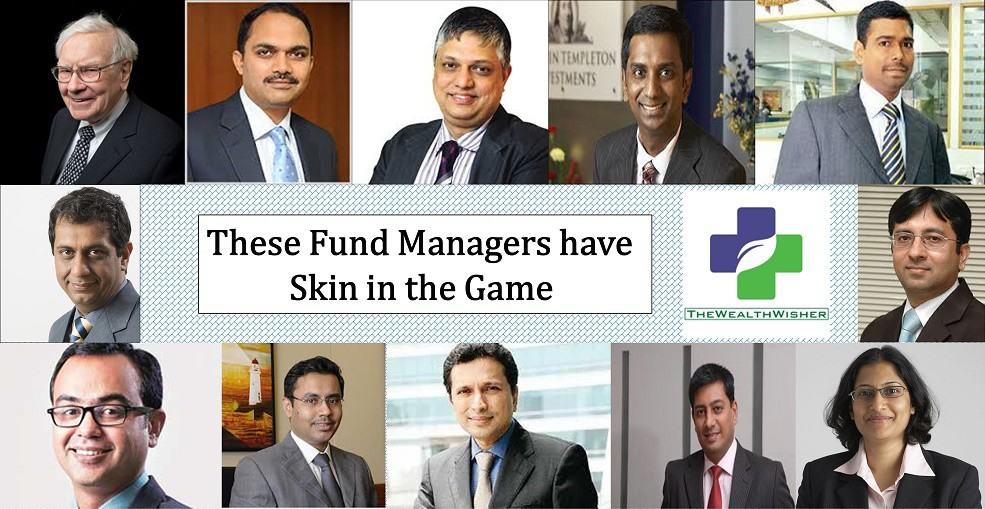Skin in the game is the term coined by Warren Buffet in Investments field, where he referred to the situation where the company owner’s or manager buy the stock of their company. This means they also have a dime attached to the welfare of the company.
This means if the managers are invested it can be ensured that corporations are managed by like-minded individuals who share a stake in the company. Executives can talk all they want to show their commitment. But the best vote of confidence is putting one’s own money on the line just like outside investors!
I was hearing a conference call from a fund manager of a large fund house. In the Q&A session, one of the agents was panicked due to markets breaching high levels. He wanted the justification to invest more money on behalf of his clients. Even the huge jargon-filled commentary could not convince him.
So, at last, he said, “Sir ji aapkey to commission ka nuksaan hoga, mere to crore apne aur sasural k lagey hain” (Translation: You will only lose commission if you don’t sell, but my and my in-law’s crore are invested). There was a lighter moment but yes he also made his point that he is also skin in the game.
To have “skin in the game” is to have incurred monetary risk by being involved in achieving a goal.
Apart from finance, a similar term is used in software & FMCG industry – Dogfooding. If you are selling dog food, you should also feed your dog with the same food. You should be convinced by claims your company makes. Similarly, the software company should use their own codes so that they get feedback on what client is facing.
It is a general concept and let’s see how this can benefit you as an investor.




Does your fund manager in India invests in his own fund?
Yes many of them are invested and they also declare the holdings. Few companies do not allow to invest fund manager in their own company to avoid “front running” or to prevent “insider trading”.
But, many companies actually encourage their employees to “dogfood” so that employee knows what they are serving for. Many mutual fund companies have facilities where they can go for salary deduction in their own employer’s managed funds. This gets deducted from the salary and units are credited in individual folios.
This Mutual Fund even puts on website “that it practices what it preaches”. Link Here
Also, Kotak AMC had asked its employees to sign a voluntary pledge to invest only in Kotak MF schemes.
But, as I said the sale of these units is restricted to avoid compliance issues.
While some fund houses have voluntarily started this initiative, the push has also come from the regulator. In 2014, SEBI mandated fund houses to put a seed capital of 1% of the amount raised (subject to a maximum of Rs.50 lakh) in all open-ended schemes during its lifetime.
Here is a list that came in media in 2016, about few fund managers investing in their own funds.

This practice is already followed in US fund industry from a long time.
Bill Gross (former bond fund manager at Janus) had invested $740 million in his own funds. Warren Buffet is known to assure his investors that most of his company directors have a major portion of their net worth invested in the company. “We eat our own cooking,” states Berkshire Hathway Owner’s Manual.
Conclusion
It is really convincing of Mutual Fund employees and especially the fund managers are putting money in their own managed funds. But this is not the only or main criteria to judge a fund. For example, you cannot expect a debt fund manager to put all his money in his own fund. Similarly, a fund manager managing sectoral fund cannot be expected to take a huge risk by investing. He may choose to invest or not as per his asset allocation.
So investing in a fund based on whether or not the manager is also invested in it should not be the driving investment decision. It is a positive indicator, but that’s about it.
Share your views on this topic and do forward the article if you liked it.










